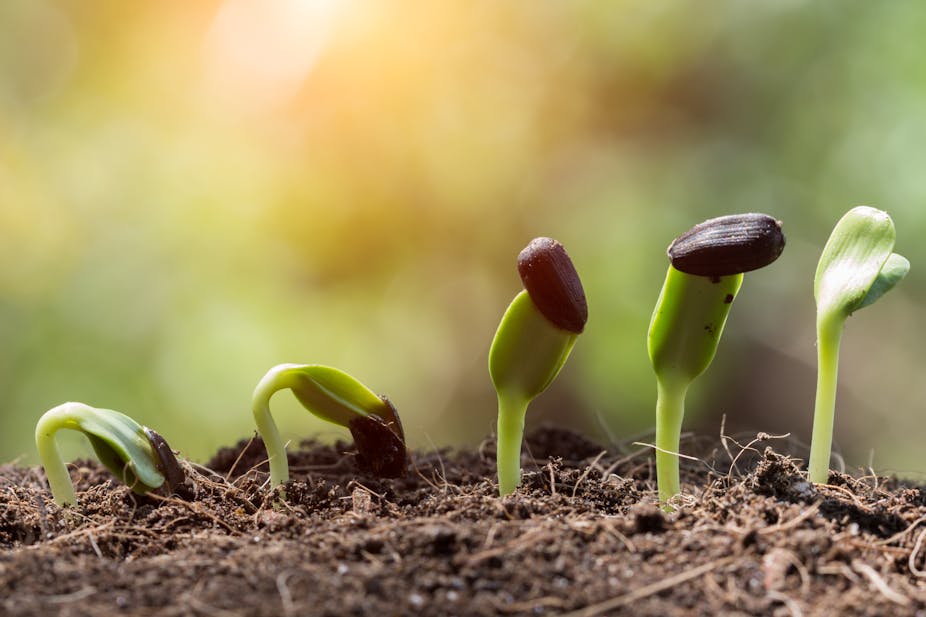Suburban London is filled with greenery and lush growth; record crop harvests appear possible across Europe, and nothing too scary has been reported on the UK plant health risk register for some time either – so why the doom and gloom about plants?
The bleak picture began with a recent report from the Royal Botanic Gardens Kew on the state of the world’s plants. An accompanying newspaper article went further, saying that botany in the UK was dead. Plants, apparently, are uncool. Looking back over a long career working with plants, I tried to remember when students flocked to study botany. Not only could I not recall those halcyon days, but I started to consider the demise of botany and the general pessimism about plant science.
The annual Chelsea Flower Show had over 150,000 paying visitors this year, organised as ever by the Royal Horticultural Society, whose own membership nudges half a million. The horticultural industry is worth over £9 billion and employs over 37,000 people. All appears rosy on the garden front. Of course, there is much more to botany than just horticulture; step back into academia and there is no doubt that the study of plants has declined, as students have instead flocked to molecular biology and biotechnology.

But botany was never a cool subject, even when prospective students had lots of courses to choose from. My honours class in the 1970s had a mere fraction of those studying zoology. Plant taxonomy was the least popular course. The module on identifying plants, species by family, was notable for its sheer tedium, however worthy and necessary these skills are to maintaining life on earth.
The main beef of those lamenting the decline of botany is not that people don’t love plants or value them, but that we’re losing taxonomists. I have some sympathy for this point of view. Without a sound knowledge of plant species and their inter-relationships, we undermine the fundamentals of all living ecosystems. Plants are the bedrock of existence, as many authors have eloquently explored, and we need people to study them. Yet the lack of botany courses in UK universities hasn’t stopped new generations of botanists appearing, keen on taxonomy and skilled in plant identification. Trainspotting of sorts is in our genes.
So in what new ways can budding botanists emerge? The decline of botany has been matched if not outstripped by a burgeoning of studies in ecology, biodiversity and all things environmental. I suspect that there are significant numbers of botanists in ecologist garb: the head of Kew’s science directorate is a plant ecologist, for example. Nor is plant taxonomy dead. The RHS has a head of horticultural taxonomy (paid for with private money) and it is clear that global initiatives to map plant diversity such as Species 2000 – which aims to create “a uniform and validated index to the world’s known (plant) species” – continue to thrive.
Cropped view
Taxonomists in all areas of biology agonise a lot about terminal decline. The evidence doesn’t always support this bleak view, however. More importantly, the plant debate seems to ignore agriculture. The Kew report sees agriculture as a harmful practice, threatening natural resources, destroying wild habitats and so on. But not everyone grows oil palms, and it is hardly helpful to suggest that there are good and bad plants in assessing the state of research. There are billions of people who grow plants for their livelihoods, so it’s important to look more closely at how botanists view agriculture.
Wild relatives of crop plants are as critically endangered as those with more appealing flowers and attractive foliage. Yet it will come as no surprise that the taxonomy of orchids is better known than that of bamboos. Or that in situ conservation of teosinte, a wild relative of maize, is infinitely more challenging than setting up seed banks. Kew’s interest in economically important plants has stuttered over the years. Visitors will struggle to find anything about agriculture when planning their itinerary, although plant scientists behind the scenes continue to study some key groups, such as palms.

Beyond the taxonomy debate, there is a wider concern for the teaching of whole plant biology. Again, I share this worry, although the scope of the concern seems unduly narrow. Despite the rise of molecular biology and genetics, there are still many countries where botany or plant science courses still exist. Want to study taxonomy? Go to Eastern Europe, Brazil, or the US, where plant sciences continue to thrive.
People come to plants from many directions. The Brackenhurst Botanical Garden in Kenya was brought back to life by a zoologist who is a more passionate botanist than I ever was. The study of plants has been reinvented and, as scientists, we should take a more rounded view of where plants grow and who grows them. Who knows, maybe botany will one day become cool after all.

